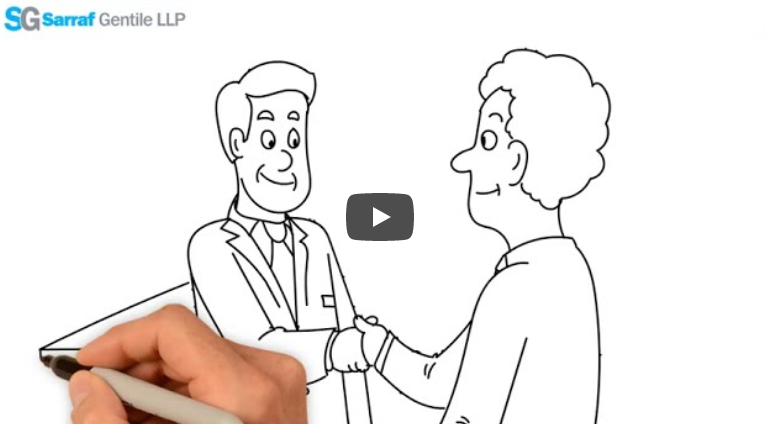Whistleblower Monetary Awards
Whistleblowers (sometimes called relators) who expose government fraud can earn millions of dollars for themselves. Exactly how much depends on the particular government program under which the whistleblower is reporting the fraud, the nature of the wrongdoing, as well as the extent of the wrongdoing’s harm on the government.
Different government programs reward whistleblowers differently. They also provide whistleblowers with various different legal protections. Some even allow whistleblowers to remain anonymous. While the SEC, IRS and many state governments have whistleblower programs, the most well known is the federal False Claims Act (FCA), which is administered by the U.S. Department of Justice (DOJ). All of these programs generally reward whistleblowers if the information they provide leads to a recovery by the government. And they generally reward whistleblowers between ten and thirty percent of what the government collects. That can be a lot.
For example, in 2019, this firm represented one of several whistleblowers in a case against Reckitt Benckiser involving the marketing of its opioid addition treatment drug Suboxone. For deceiving federal and state government healthcare systems, Reckitt Benckiser paid the government $1.4 billion – the largest opioid recovery in U.S. history. The whistleblowers in that case were awarded over $100 million. And in 2012, four whistleblowers split approximately $250 million related to a case brought against GlaxoSmithKline for marketing practices involving Paxil, Wellbutrin and Avandia. Many other less well known cases have paid out seven or eight figure sums to whistleblowers.
While many whistleblower programs reward whistleblowers with a share of the proceeds recovered by the government, the one that has paid out the most money to whistleblowers is the FCA. Under that law, if the government intervenes in a case brought by a whistleblower, it will pay a reward of 15% to 25% of the total money recovered from the defendants. If the government does not intervene and the whistleblower and her counsel prosecute the case on their own, then the government pays a reward of between 25% and 30%.
In most cases, the whistleblower’s counsel will negotiate the actual percentage with the government lawyers. If they cannot agree, the Court makes the determination using guidelines that the DOJ published in 1996. Using 15% as a minimum award, these are the factors that weigh in favor of an upward adjustment:
1. The whistleblower reported the fraud promptly.
2. When he learned of the fraud, the whistleblower tried to stop the fraud or reported it to a supervisor or the Government.
3. The action, or the ensuing investigation, caused the offender to halt the fraudulent practices.
4. The complaint warned the Government of a significant safety issue.
5. The complaint exposed a nationwide practice.
6. The whistleblower provided extensive, first-hand details of the fraud to the Government.
7. The Government had no knowledge of the fraud.
8. The whistleblower provided substantial assistance during the investigation and/or pretrial phases of the case.
9. At his deposition and/or trial, the whistleblower was an excellent, credible witness.
10. The whistleblower’s counsel provided substantial assistance to the Government.
11. The whistleblower and his counsel supported and cooperated with the Government during the entire proceeding.
12. The case went to trial.
13. The FCA recovery was relatively small.
14. The filing of the complaint had a substantial adverse impact on the whistleblower.
And these are the factors that weigh towards a downward adjustment:
1. The whistleblower participated in the fraud.
2. The whistleblower substantially delayed in reporting the fraud or filing the complaint.
3. The whistleblower, or whistleblower’s counsel, violated FCA procedures by, for example, failing to file the complaint under seal, disclosing a copy of the complaint to the defendant, publicizing the case while it is under seal, or not providing the government with a statement of material facts and evidence.
4. The whistleblower had little knowledge of the fraud or only suspicions.
5. The whistleblower’s knowledge was based primarily on public information.
6. The whistleblower learned of the fraud in the course of his Government employment.
7. The Government already knew of the fraud.
8. The whistleblower, or whistleblower’s counsel, did not provide any help after filing the complaint, hampered the Government’s efforts in developing the case, or unreasonably opposed the Government’s positions in litigation.
9. The case required a substantial effort by the Government to develop the facts to win the lawsuit.
10. The case settled shortly after the complaint was filed or with little need for discovery.
11. The FCA recovery was relatively large.
(According to the DOJ, the following exception applies: Section 3730(d)(1) of the FCA limits the whistleblower to no more than 10 percent of the proceeds when the complaint is based primarily on public information and that Section 3730(d)(3) allows the court to reduce the percentage below 15 percent if the whistleblower planned and initiated the fraud, and requires the court to dismiss the whistleblower if he is convicted for the actions giving rise to the submission of the false claims.)
Many lawyers who regularly handle these cases (including this firm) do so on a contingency basis, meaning they do not charge a fee unless the case is successful. The attorneys also pay all of the case expenses and are only reimbursed if there is a recovery. The attorney’s fees vary and are typically a percentage of the whistleblower’s award. The range is typically from one third to 45% depending on a number of factors including whether the government intervenes.
Most people who decide to become whistleblowers don’t do it solely for money. They are typically motivated by a strong sense of justice and fair play. However, given the risk and time commitment involved with blowing the whistle, monetary rewards is a legitimate consideration. .

